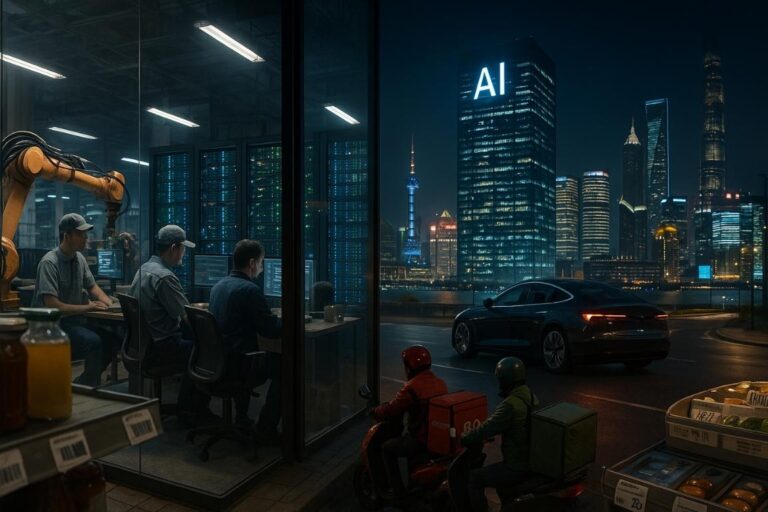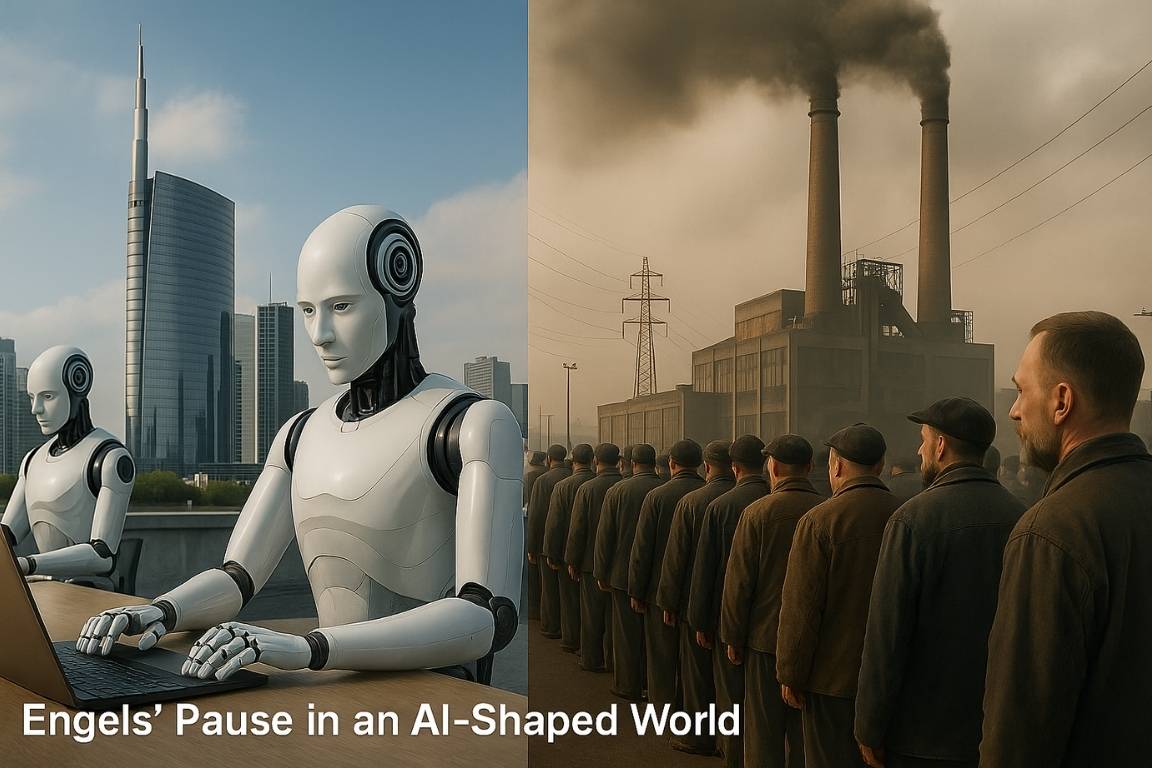Nobel Laureate Geoffrey Hinton recently warned that Artificial Intelligence (AI) could make a few people very rich while making most others poorer.
What are Engels’ Pause?
- Term by economist Robert Allen, named after Friedrich Engels.
- Refers to 19th-century Britain, when industrial output grew rapidly but workers’ wages stagnated and inequality widened.
- Improvements in living standards came only decades later, after reforms and institutional changes.

AI and the Modern Engels’ Pause
- AI is a General-Purpose Technology (GPT) like steam, electricity, or the internet — with potential for transformation but also short-term inequality.
Productivity vs. Wages
- AI tools (e.g., in call centres) improve productivity by 30–50%.
- Yet workers’ wages remain stagnant, and cost of living continues to rise.
- Workers feel poorer despite technological gains — a key sign of an Engels’ pause.
Rising Cost of Complements
- AI success needs cloud services, retraining, data, and cybersecurity.
- These are costly — making it expensive for workers to stay relevant.
- Similar to how higher wages in 19th century were offset by higher food prices.
Unequal Gains and Global Inequality
- AI could add $15.7 trillion to global GDP by 2030, but benefits will be concentrated in few countries and big firms.
- 40% of jobs globally face AI exposure, with advanced economies more affected.
- Inequality may deepen before welfare improves.
Job Displacement and Task Shifts
- AI reshaping sectors like health, education, finance, and public services.
- Some roles are transformed, others replaced — creating uncertainty for workers.
Skill Transition Programmes
- Example: Singapore’s SkillsFuture — continuous reskilling for workers.
- Institutions like MBZUAI (Abu Dhabi) focus on AI-specific education.
Redistribution of AI Gains
- Through robot taxes or Universal Basic Income (UBI) experiments.
- Aim: share productivity gains widely.
AI Infrastructure as Public Good
- Ensure affordable compute, data access.
- Open AI models (like K2Think.ai, Apertus) are steps toward equitable access.
Challenges
- Today’s welfare systems are stronger, but AI inequality may grow faster.
- Without governance and policy, benefits will remain limited to elites.
Conclusion
AI can trigger an Engels’ pause if growth benefits only a few. Governments must ensure inclusive innovation, reskilling, and redistribution so that AI becomes a human welfare revolution, not just a productivity one.





